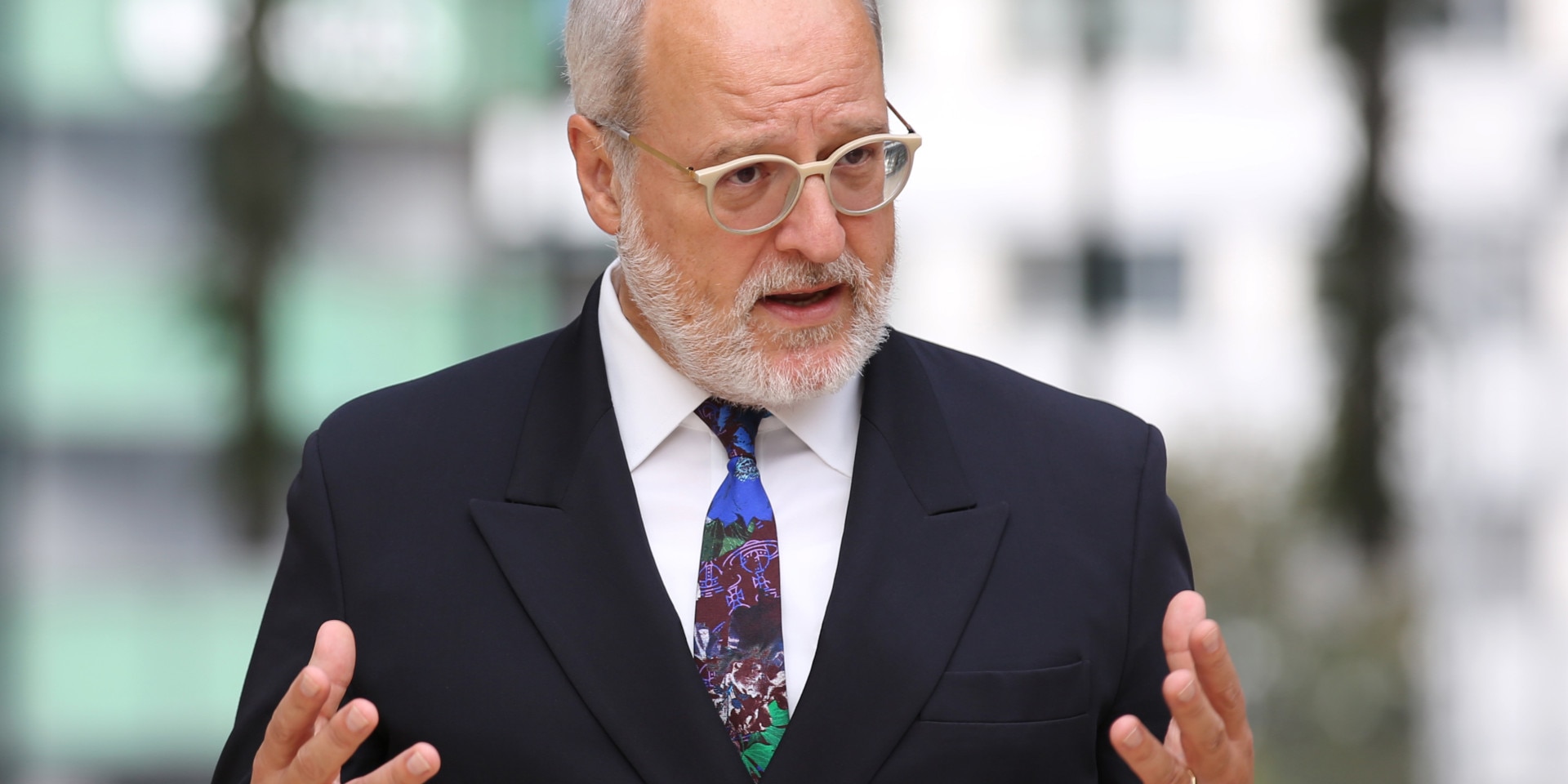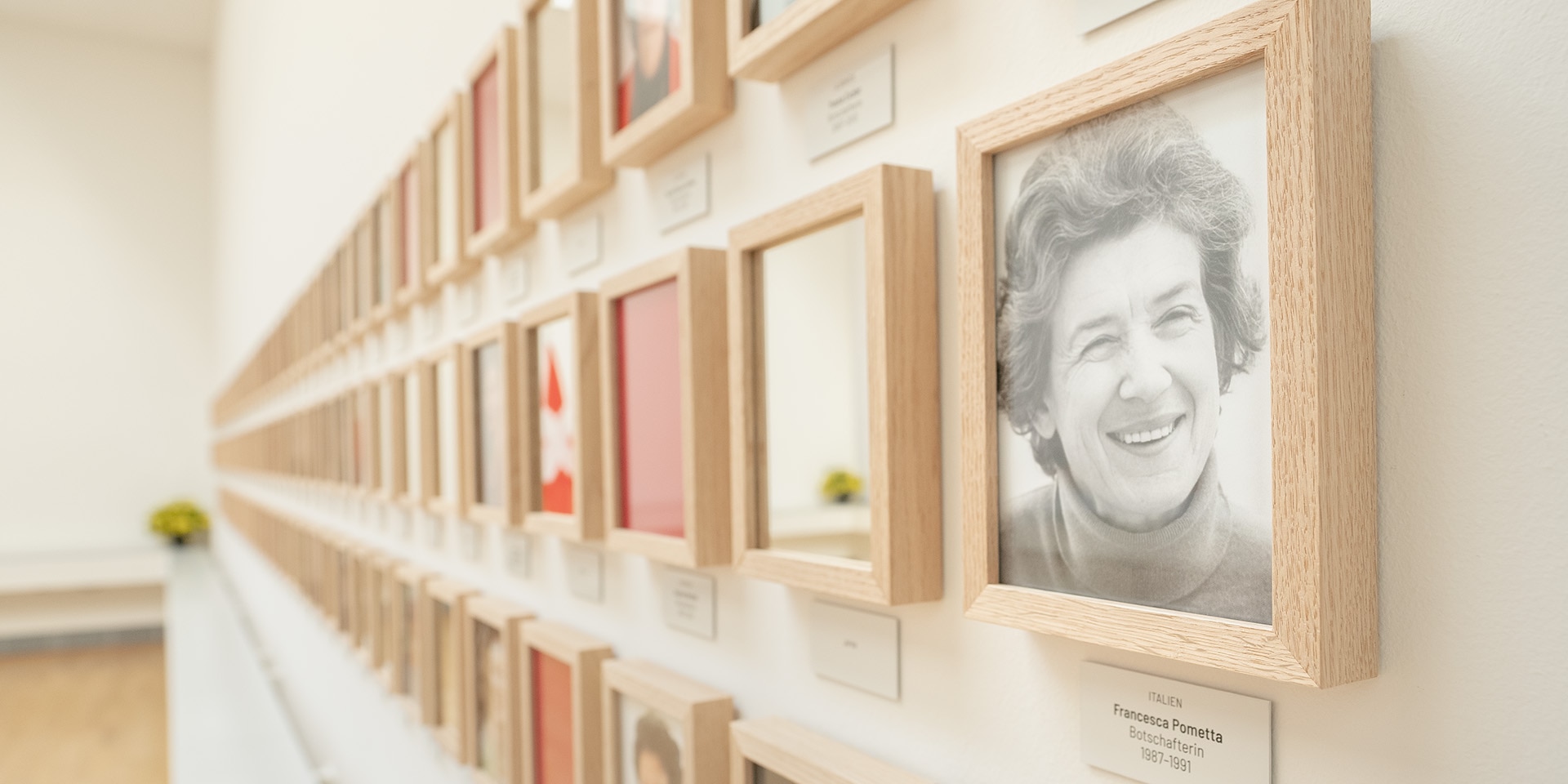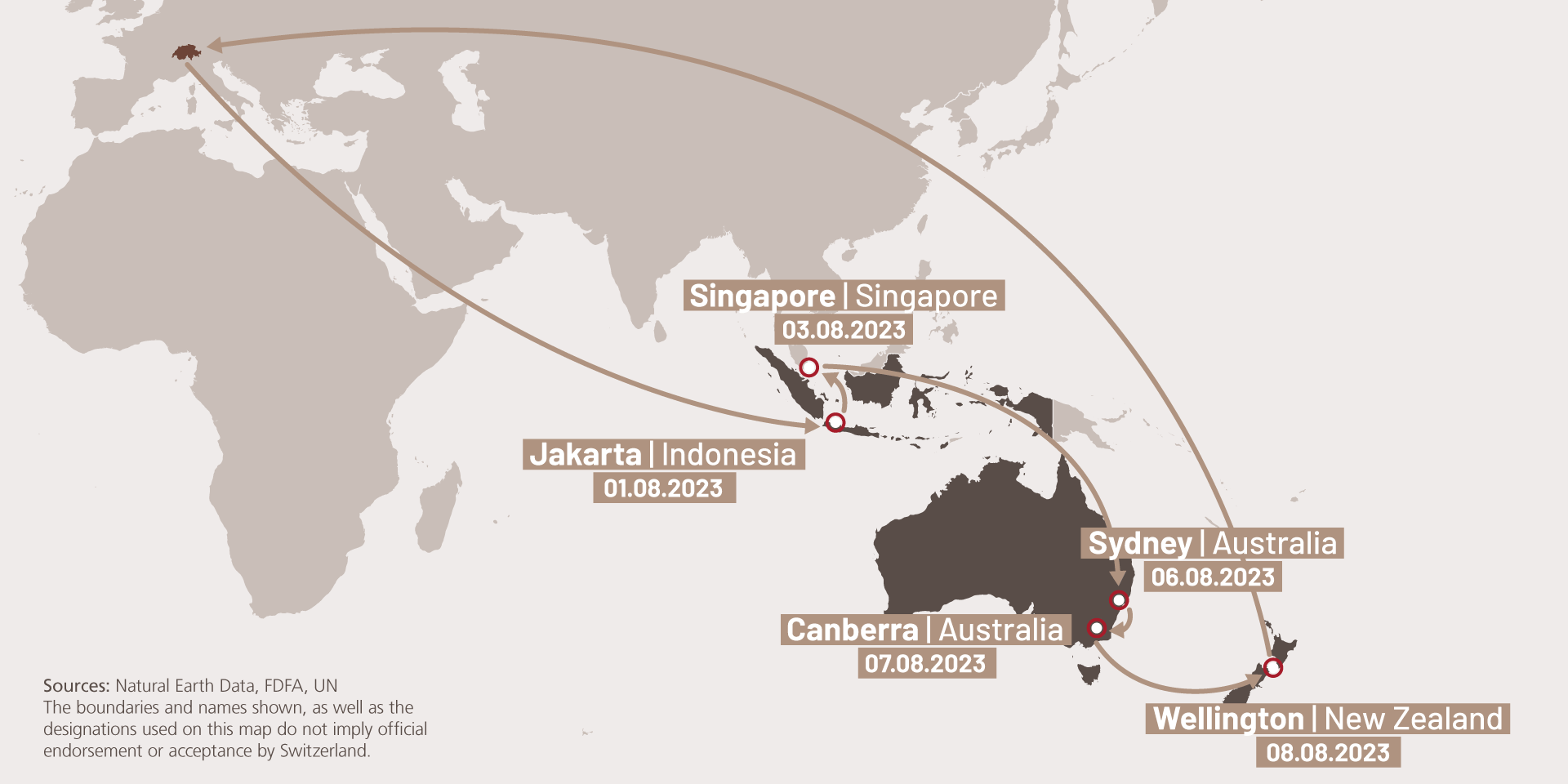Swiss representatives posted around the world network in Bern
This year's Ambassadors and International Network Conference is taking place from 21 to 24 August 2023 in Bern. The meeting of Swiss honorary consuls, which takes place every four years, will also be held at the same time. Around 240 participants will discuss how Switzerland needs to adjust its foreign policy strategy in order to address today's global challenges. So what is the Ambassadors' Conference actually about? Ambassador Alexandra Baumann, who is in charge of organising the event, takes us behind the scenes to find out.
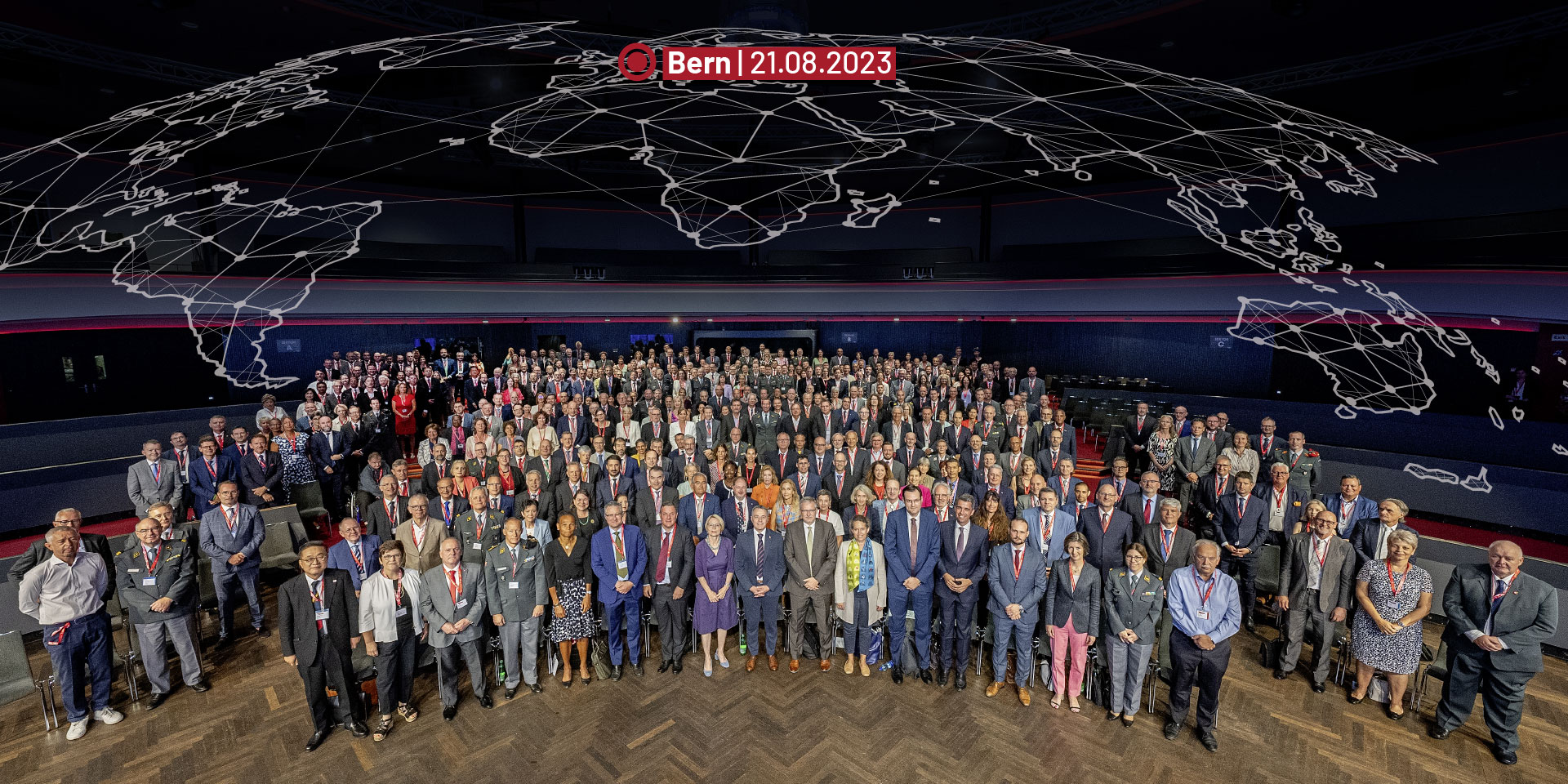
Switzerland is present with around 170 representations worldwide. © FDFA
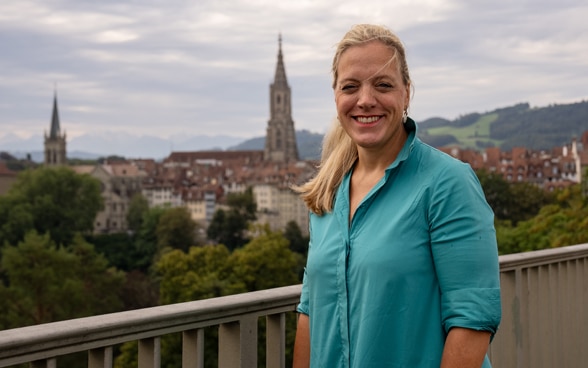
Swiss foreign policy is decided by the Federal Council together with Switzerland's electorate. It is then implemented by the Swiss representations abroad – the external network. This sums up the role of Switzerland's diplomats, who are spread across the world in around 170 different locations. They are the spokespersons of Swiss diplomacy, and work to safeguard the country's interests. They also act as Switzerland's eyes and ears on the ground. "The Ambassadors' Conference is an opportunity to align foreign policy positions developed in Bern with what is actually happening abroad and how Switzerland is perceived in these countries. Maintaining dialogue on current foreign policy challenges with the entire external network and leveraging the experience and expertise of our ambassadors from all over the world is therefore key," explains Alexandra Baumann, who is in charge of organising the event. At the FDFA, Alexandra Baumann heads the Prosperity and Sustainability Division and chairs the interdepartmental working group for the recovery process in Ukraine.
Let's take Ukraine as an example. "In the context of Russia's war against Ukraine, Switzerland's positions are not always understood by our foreign policy partners. The external network can to a certain extent monitor such changes in how Switzerland is perceived abroad." At the same time, it is important that Switzerland's positions are understood and represented in a credible manner – Swiss diplomats posted around the world also need to gauge developments on Switzerland's domestic political scene. The word 'network' isn't coincidental: the Swiss representations abroad are interconnected and the Ambassadors' Conference provides a vital link to Bern, where the foreign policy strategy for the next four-year period is currently being prepared.
Expertise from around the world helps shape new foreign policy strategy
The theme of this year's Ambassadors' Conference is 'Diplomacy in a changing world', highlighting the need for change and innovative solutions. The considerable global repercussions of two recent events – the COVID-19 pandemic and Russia’s military aggression against Ukraine – have taken place in a short space of time. Competition between the major world powers has also increased, leading to a new geopolitical situation. "This year, conference participants will examine how Switzerland needs to adjust its foreign policy strategy, objectives and priorities in order to address this changing environment," Baumann continues.
The foreign policy strategy for the upcoming 2024–27 period is currently being prepared by the FDFA and will be one of the focal points at this year's conference. "Switzerland's ambassadors, who have already made contributions to the strategy during the preparatory stage, will now have the opportunity to help finalise the completed draft," she explains.
The Ambassadors' Conference will debate other current issues such as the war against Ukraine and its consequences for Switzerland, Swiss-EU relations, and Switzerland's current seat on the Security Council. One half-day will also be dedicated to economy-related issues under the title 'Switzerland's added value'. "In cooperation with economiesuisse, we have organised visits to different companies in order to strengthen networking between Switzerland's private sector and the external network, who should also be made aware of the current challenges facing some of these businesses," Baumann adds.
The conference's regional workshops, which are also of key importance for the participating ambassadors, will cover the EU, Eurasia, the Middle East and North Africa, Sub-Saharan Africa, the Americas, Asia and the Pacific. Let's take a look at some examples.
Regional workshops: an example from the Middle East and North Africa (MENA) region

The Ambassadors' Conference is not a decision-making body that issues resolutions but serves as a springboard for new strategies and projects. At a workshop held during the 2022 edition, for example, participants set out the goals, priorities and content of the South East Asia Strategy, which was adopted by the Federal Council last February. Another example is the 2020 conference workshop where the guidelines for the Americas Strategy, adopted last year, were developed.
The regional workshops are key events. Ambassadors posted to different locations in the same region can use this space to talk about the specific issues that concern them. This year's MENA workshop will address the impact that changing alliances in the region and new lines of conflict have on Switzerland’s engagement on site. Conflicts are increasingly being resolved independently or the states in the region are turning for mediation towards new partners, such as China. "The workshop will allow us to explore what these changes mean for Switzerland's good offices and protection mandates, and to discuss how Switzerland should position itself in order to maintain its added value in peace policy in the region," notes Baumann.
To Bern and back: what happens next?
The Ambassadors' Conference does not set out to address every topic or need in a comprehensive manner, nor is it only the FDFA that is involved. Each year, the Federal Council also takes part. "It's important that our ambassadors hear what the federal councillors' priorities and expectations in their respective policy areas are," Baumann says. In fact, what happens after the conference is arguably more important than the event itself. "The key takeaways from each workshop are transmitted to the responsible divisions, which carry out the follow-up work. Outcomes from last year's conference for example were incorporated into the preparations for Switzerland's seat on the Security Council," she continues.
The formal and informal dialogues held regularly between the external network and head office in Bern help ensure the continuity of such reflections on the different topics. This includes town hall meetings between the state secretary and external network, regional conferences, and ambassadors on annual visit to Switzerland. And so we continue to network as we look forward to the 2024 edition of the Ambassadors’ Conference.
The Conference since 1887
The first edition took place in 1887 on the initiative of then President of the Confederation, Numa Droz, who proposed a meeting with the Swiss heads of mission in Paris, Vienna, Rome, Berlin and Washington. Droz's idea of creating such a space to discuss topical issues continues to this day.
In 2011, former Federal Councillor Micheline Calmy-Rey decided to invite honorary consuls to the event as well. Since then, a consuls' meeting has been held in conjunction with the Ambassadors' Conference every four years.

